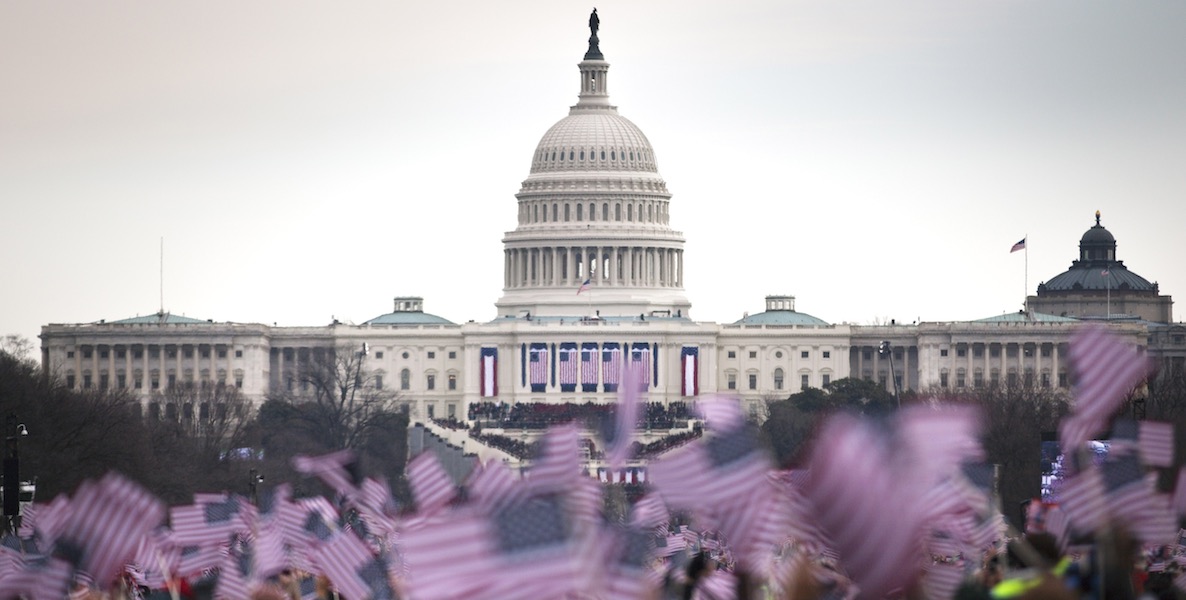In my days as a constitutional law professor at West Point, I’d begin the semester with the analogy that our Constitution is like the game “Rock, paper, scissors.”
The purpose being that no branch is more powerful than the other. Each is supposed to keep the others in check. Checks and balances are the genius of American democracy.
But lately, one of those branches has stopped doing its job.
It’s not the President. And it’s not the courts.
It’s Congress.
You see it in the big things: in bills that swell the deficit by trillions while slashing Medicaid for seniors and children. You see it in the small things: in provisions buried in legislation that would allow jury verdicts to be overturned if they go against Donald Trump.
We saw this same dynamic during the Trump administration’s tariff debacle. Unilaterally imposed under the guise of executive authority, those tariffs not only stifled economic growth but were repeatedly challenged by the courts. The U.S. Court of International Trade ruled that President Trump had overstepped his authority when issuing baseline tariffs of 10 percent —and even higher for key allies like Canada and Mexico. That wasn’t just bad economics; it was a power grab. And Congress barely flinched.
Now, we’re seeing it with higher education.
From the President’s vague threats behind revoking student visas of some Palestinian protestors to ending federal funding from Ivy League universities, he’s created an environment of hostility, uncertainty and fear. The policy is so sweeping and ill-defined that even the Anti-Defamation League — the country’s leading organization on antisemitism — has walked back its initial support. It’s no wonder international students are thinking twice about coming here.
Every year, international students contribute more than $50 billion to the U.S. economy. They fund research. They fill critical STEM jobs. They help keep American universities globally competitive. But after years of hostile immigration policies and political grandstanding, we’re watching that pipeline dry up.
According to USA Today, 54 percent of prospective international students are now less likely to enroll in U.S. universities this fall. This purge is a form of economic sabotage. This is not just about college campuses. This is about innovation, economic growth and global standing.
We are turning these students away. Not with a law, but with a signal saying, “You’re not welcome here.” American colleges and universities are already facing stiff headwinds with a demographic cliff — 400,000 fewer American high school students will graduate in the next 15 years — a 13 percent decrease.
Congress as rubber stamp
Where is Congress in all this?
The same place it was when tariffs were imposed on our allies under the banner of economic nationalism. The same place it was when the courts had to step in and say: actually, the president doesn’t have the authority to unilaterally rewrite trade policy.
The same place it’s been for too long: on the sidelines.
Congress isn’t broken because it lacks power. It’s broken because it doesn’t have the moral courage to use the power it has. The founders didn’t design the legislative branch to be a fan club. They designed it to be the voice of the people — the place where hard questions get asked, executive overreach gets checked, and laws get made with consensus.
Let me be clear. This isn’t about Trump. Or Biden. Or red states or blue ones. This is about something deeper than politics.
The real crisis in American government isn’t that one party is too extreme, or that one man has too much power. The real crisis is that the branch of government designed to keep that power in check has lost its backbone.
Instead of acting as the people’s voice, Congress has become a rubber stamp.
That’s not how this country is supposed to work. And Americans know it.
In recent elections across Pennsylvania — a swing state if there ever were one — voter turnout has surged, especially in purple districts like Bucks County. The razor-thin results reflect just how divided our country really is. In the 2024 presidential election, over 80 percent of registered voters in Bucks County turned out, with Donald Trump narrowly winning the county by 291 votes. This marked the first Republican victory there since 1988. Independents, who swung for Trump in 2016, Biden in 2020, and Trump in 2024, are breaking away again from Republicans. But not necessarily because they love the Democratic Party. Because they’re fed up with both sides’ dysfunction and cowardice.
This moment isn’t about left versus right. It’s about remembering the oath every federal official takes: to support and defend the Constitution of the United States against all enemies, foreign and domestic.
That doesn’t mean posting performative tweets for clout or introducing legislation that’s dead on arrival. It means doing the hard, unglamorous work of governing. Asking tough questions. Drawing real red lines. Saying no, even when it’s politically inconvenient. When I served in Congress and voted against budgets — when it was President Bush’s budget but especially when it was President Obama’s budget — I wasn’t the most popular member in my party. But I wasn’t in Congress to make friends or be invited to fancy cocktail parties — I was there to do my job, look people in the eye and let them know where I stood and rally against immoral deficits my son and daughter (and yours) will have to pay for.
Yes, working with the executive branch is part of the job. But being its doormat is not.
It’s easy to blame any president, especially this one. Even the President’s former confidant, Elon Musk, has been vocal about his distaste for the bill and Trump’s support for a budget that would drastically increase the deficit. It’s harder to look at the institution with the power to say “enough,” and ask why it never steps up.
We cannot afford a Congress that folds every time because the current president might attack you personally. (Trust me, he’s attacked me by name on Truth Social twice. It’s not pleasant, but frankly, it’s a badge of honor.) I’d remind my former colleagues that Judgment Day is more important than Election Day.

Some of the lovely words President Trump has shared about me.
Because in a system of checks and balances, when one branch fails, the entire system fails with it. And when that happens, it’s not just students or scientists or Medicaid recipients who suffer. It’s all of us.
So here’s my ask, as a former Army officer, as an educator, and as an engaged citizen: To our representatives — do your job. Not for your party. Not for your base. But for the people who elected you. And for the republic you swore to support and defend.
Do it for the kids who’ll be stuck inheriting whatever fragile democracy we leave behind.
It’s not too late to remember how our democracy is supposed to work.
But time is running out.
The Honorable Patrick J. Murphy is a Wharton lecturer, Vetrepreneur, and the 32nd Army Under Secretary after earning the Bronze Star for service in Baghdad, Iraq as an All-American with the 82nd Airborne Division — @PatrickMurphyPA on Instagram and Twitter.
The Citizen welcomes guest commentary from community members who represent that it is their own work and their own opinion based on true facts that they know firsthand.
![]() MORE ON THE SITUATION IN OUR FEDERAL GOVERNMENT
MORE ON THE SITUATION IN OUR FEDERAL GOVERNMENT





